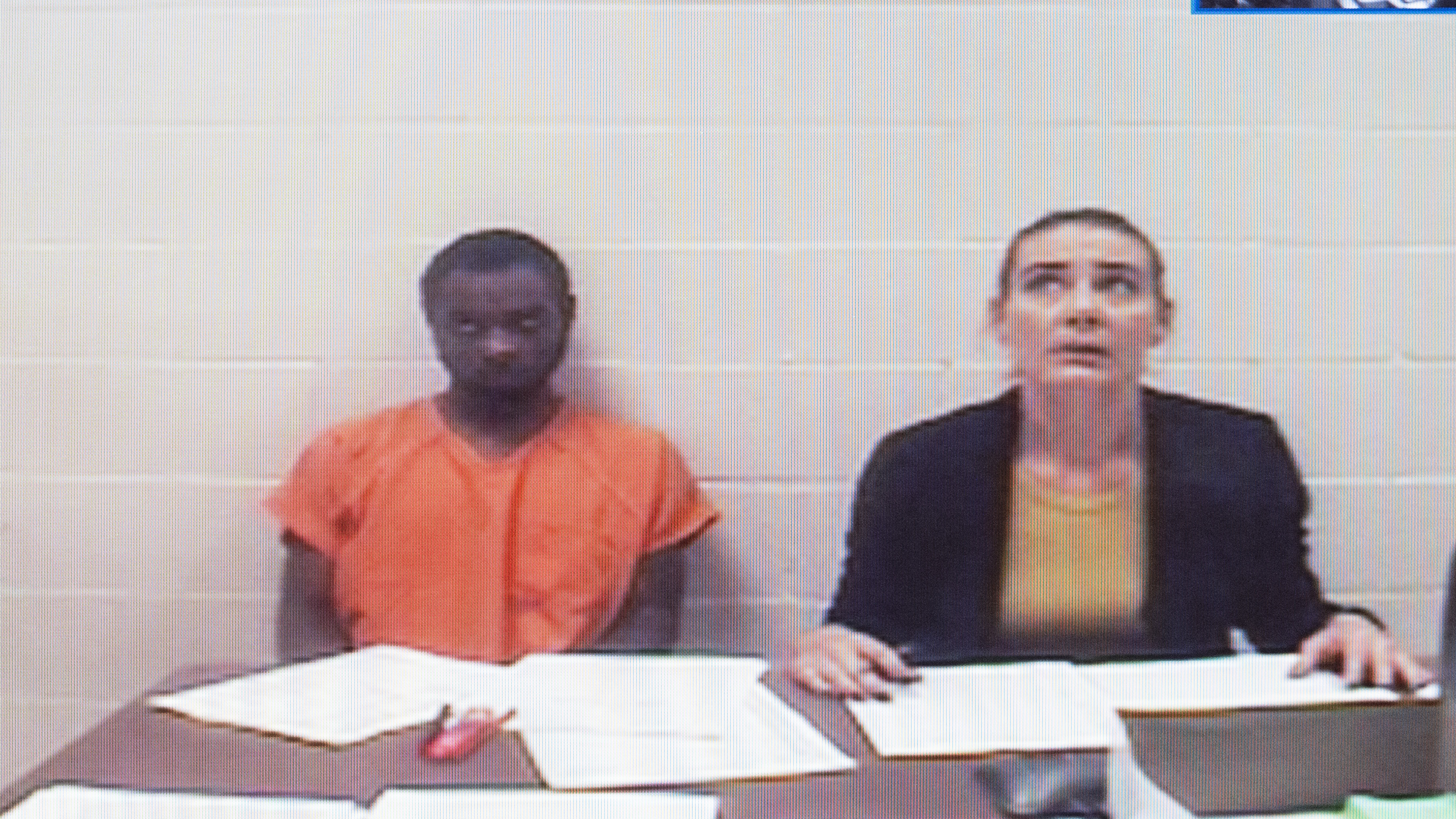
Members of the Ohio House expelled Rep. Larry Householder, the federally indicted Republican ex-speaker, Wednesday in a bipartisan vote that invoked their powers to remove a member for the first time in 150 years.
The GOP-controlled House voted 75-21 to remove Householder, of Perry County, approving a resolution that stated he was not suited for office because of the indictment. The state Constitution allows expulsion for “disorderly conduct” without defining it.
Defiant to the end, Householder reiterated his innocence in a House floor speech before the vote and predicted again he would be acquitted of accusations that he orchestrated a $60 million bribery scheme meant to approve legislation to prop up two nuclear power plants and then kill a ballot issue trying to overturn the law.
“I have not nor have I ever taken a bribe or solicited or been solicited for taking a bribe,” Householder said.
After the vote, Speaker Bob Cupp paused the House session briefly while Householder left without incident, trailed by reporters.
Householder said he was returning to his southern Ohio farm Wednesday to help his wife plant tomatoes, cabbage, lettuce and sweet corn. Over the longer term, he intends to speak out against elected officials he believes — unlike himself — have in fact acted unconstitutionally.
“I can tell you this much,” Householder told reporters. “Fellow elected officials who didn’t like public citizen Householder are really not going to like private citizen Householder.”
The full House took to a vote after Republican lawmakers forced the measure to the floor instead of waiting for the expulsion resolution to work through the committee process.
Reps. Brian Stewart and Mark Fraizer, both Republicans representing districts that border Householder’s, encouraged their colleagues to “do the right thing” and remove Householder from his seat.
“If racketeering, bribery and money laundering do not constitute disorderly conduct, then frankly nothing ever could,” Stewart said.
Feeling out of the loop? We'll catch you up on the Chicago news you need to know. Sign up for the weekly Chicago Catch-Up newsletter.
Fraizer called the indictment a stain on the institution and said, "it is time for us to come together as one body.” Among other Republicans voting to expel their GOP colleague were eight of the 13 remaining members Householder had recruited to help him win the speakership and Cupp.
Cupp said the federal grand jury indictment was the deciding factor for him. “It seems to me that clearly meets the definition in the Ohio Constitution of disorderly conduct,” he said.
Householder and four associates were arrested in July in an investigation connected to the nuclear bailout legislation, House Bill 6, which contained a $1 billion ratepayer-funded rescue that would have added a new fee to every electricity bill in the state and directed over $150 million a year through 2026 to the plants near Cleveland and Toledo.
Householder faces up to 20 years in prison if convicted.
More Ohio Coverage
Before the expulsion vote, GOP Rep. Bill Seitz of Cincinnati argued unsuccessfully that an unproven criminal indictment is not the action implied by disorderly conduct. The proper approach would be an impeachment trial or to wait for the criminal case's outcome, he said.
“What else are they going to bring in and say is disorderly conduct?” Seitz said.
State Rep. Emilia Sykes, the top House Democrat, who has been urging lawmakers to expel Householder for several months, said the disgraced lawmaker gave the chamber “no choice but to act.”
“Make no mistake, there is no joy in seeing a former Ohio speaker removed from office in disgrace, but this is our opportunity to stand against corruption and to turn a page on this dark chapter in Ohio history and begin to rebuild the People’s trust in a government that’s supposed to work for them,” Sykes said in a statement.
“Justice, decency and common sense gave a standing ovation to today’s vote to expel Mr. Householder from the People’s House,” Republican Attorney General Dave Yost tweeted shortly after the vote.
A day before his colleagues voted him out, Householder appeared in front of a committee where he delivered hours-long testimony on why removing him from office would be the wrong thing to do.
“Just think of the precedent this will set: Allegations are enough to remove anyone from office,” Householder testified Tuesday. “That’s absurd.”
Two of Householder's co-defendants and an involved nonprofit have pleaded guilty in the case. FirstEnergy, the energy company at the heart of the latest scandal, has acknowledged in court filings making the bulk of the payments in the alleged bribery scheme.
The last time the Ohio House expelled a sitting lawmaker was in 1857 when John P. Slough was removed for punching a fellow legislator.
On Tuesday, Householder went on to compare the bipartisan efforts to remove him to the attempts by Congressman Adam Schiff and House Speaker Nancy Pelosi to impeach former President Donald Trump earlier this year. “This is clearly politically motivated and I think everyone in this room knows that,” he said.
In 2004, Householder left the House the first time due to term limits while he and several top advisers were under federal investigation for alleged money laundering and irregular campaign practices. The government later closed the case without filing charges.
Householder ultimately returned to the chamber and, after a nasty battle, was again elected speaker in 2019.
The man he beat for the job, former Republican Speaker Ryan Smith, had alleged Householder and his allies intimidated Smith's supporters during two speaker battles where Householder was either involved or running.
On Wednesday, Smith tweeted simply, “KARMA!”
Farnoush Amiri is a corps members for the Associated Press/Report for America Statehouse News Initiative. Report for America is a nonprofit national service program that places journalists in local newsrooms to report on undercovered issues.



